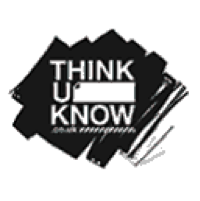Online Safety
Advice for parents
Does it feel like your child knows much more about the internet than you? Do you understand your child’s cyber culture; that is, the way in which he/she uses the internet and mobile devices such as mobile phones and tablets for homework, to play and socialise? Do you understand the dangers of unsupervised access to the internet and the world of social-networking? Do you understand how to keep your child safe from on-line predators and cyber bullying? These issues are sometimes complex, and we can often struggle to keep up. There are increasingly more opportunities for young people to get online and connect with other people, whether they are adults or children; at school and at home – through online gaming, tablets and mobile phones to name a few. Accessed appropriately, the internet can be a great resource to help support your child’s continuous learning but as large parts of the internet are largely un-moderated, unsupervised access can also pose a risk to your child. To help you combat these issues we advise you to access some important website links that offer good practical advice.
Mobile Devices
Most mobile devices are able to connect to the internet not only wirelessly (via a WIFI or wired connection), but also via 5G. A number of Apps can be downloaded to any one device and many of them are available at no cost. As these often quite small devices, they are very portable and often get taken out of the home to give regular access to the internet. Photos taken on mobile devices can be very easily shared; once shared they become public property and almost impossible to ever fully delete from the internet.
Social Networking
Many children have access to social networking on their home computers, their tablets and Smart TV’s, their mobile phones and gaming devices. It is always a good idea to have knowledge of what sites your child is registering a profile with and what information they are choosing to give. Common sites include Facebook, X, Pintrest, Instagram and Snapchat, Many of these have a minimum usage age of 13 and will have a range of security settings. It’s important that these are set to the highest available
Official Sites
There are a number of sites which are designed to give parents and carers all the information they need to keep up date in the technology world; giving you the information to help keep your child safe. Here, you will find links to all of the following sites as well as a number of specific publications (click on the image).
What can you do if you're suspicious about someone your child is talking to online?
You probably have a pretty good sense when something isn't right with your child. But where do you go for help if it's their online life that's worrying you? What can you do if they're talking to somebody they don’t know in the real world; if an online ‘friend’ has asked them to share inappropriate images or to meet up?
If you’re concerned that something might be happening with your child, you can report via CEOP.
Online Safety at Ryhall CE Academy
Through our curriculum, our standards of practise and the ‘safe’ measures that we put in place, we are committed to educating your child in keeping safe online. Through our IT & Computing and PSHE (Personal, Social, Health and Economic education) programmes we will ensure that children are well informed, understand the dangers associated with the internet and have opportunity to explore safe practices. Staff receive annual training and updates to ensure that they continue to enhance learning in their use of IT with individual subject areas. We also join the national Safer Internet day which takes place in February. Many of the resources we use are from www.thinkuknow.co.uk but if you find a resource that you think will be useful in our curriculum please do let us know.
About Thinkuknow
Thinkuknow is an education programme from the National Crime Agency’s CEOP Command supporting teachers, children and parents to help deliver important e-safety information.
Thinkuknow aims to ensure that everyone has access to this practical information – children, young people, their parents and carers and the professionals who work with them.
Alongside the Thinkuknow website the programme provides educational resources, including films, cartoons and lesson plans, to help professionals raise young people’s awareness. Here at Ryhall CE Academy we use the age appropriate resources to help teach your child about e-safety.
If you’re worried that your child is being groomed online or sexually exploited you should report your concerns to CEOP.
It is not always easy to spot the signs of online grooming and sexual exploitation so if you have any concern at all about someone your child is in contact with, you should get in touch.
You should always report if your child is or has been in contact with someone who is:
- Chatting online to your child about sex
- Asking them to do sexual things on webcam
- Asking to meet up if they’ve only met them online
- Requesting sexual pictures
- Forcing them into sexual activity
- Making them feel unsafe
CEOP is a command of the National Crime Agency and can investigate what is happening – with the assurance that the safety and wellbeing of your child is paramount at all times.
If you are concerned that your child is in immediate danger, call 999.
Online Safety Resources for Parents / Carers
-
Cyberbullying Factsheet for Parents
download_for_offline
download_for_offlineCyberbullying Factsheet for Parents
- eSafety Leaflet for Parents download_for_offline
download_for_offlineeSafety Leaflet for Parents
- Grooming Factsheet for Parents download_for_offline
download_for_offlineGrooming Factsheet for Parents
- Instagram - a Guide for Parents download_for_offline
download_for_offlineInstagram - a Guide for Parents
- Parent factsheet on inappropriate websites download_for_offline
download_for_offlineParent factsheet on inappropriate websites
- Roblox - A Parents Guide download_for_offline
download_for_offlineRoblox - A Parents Guide
 ×
×Peterborough Diocese Education Trust
PDET is a family of Church of England Schools across Northamptonshire, Peterborough and Rutland.
Visit Site - eSafety Leaflet for Parents download_for_offline









